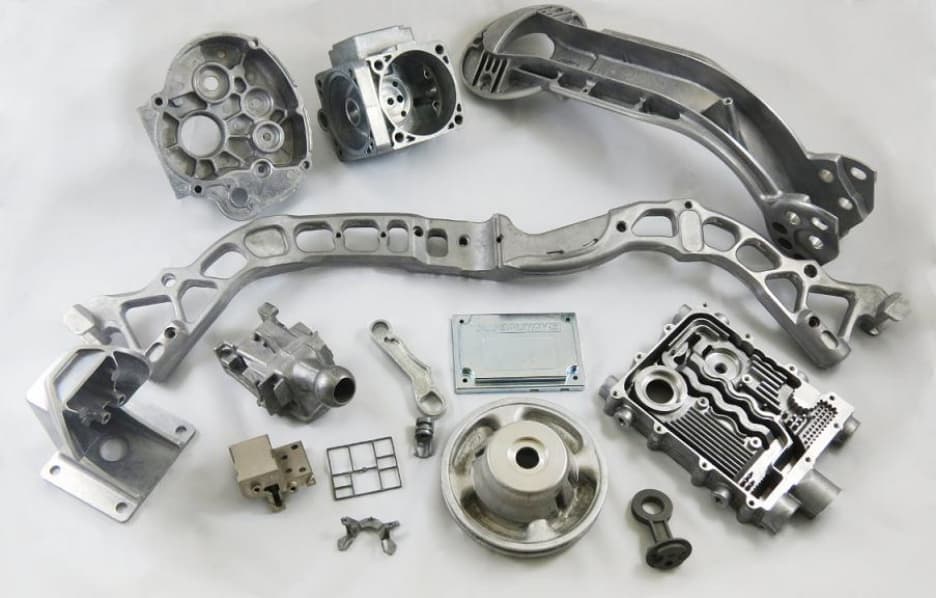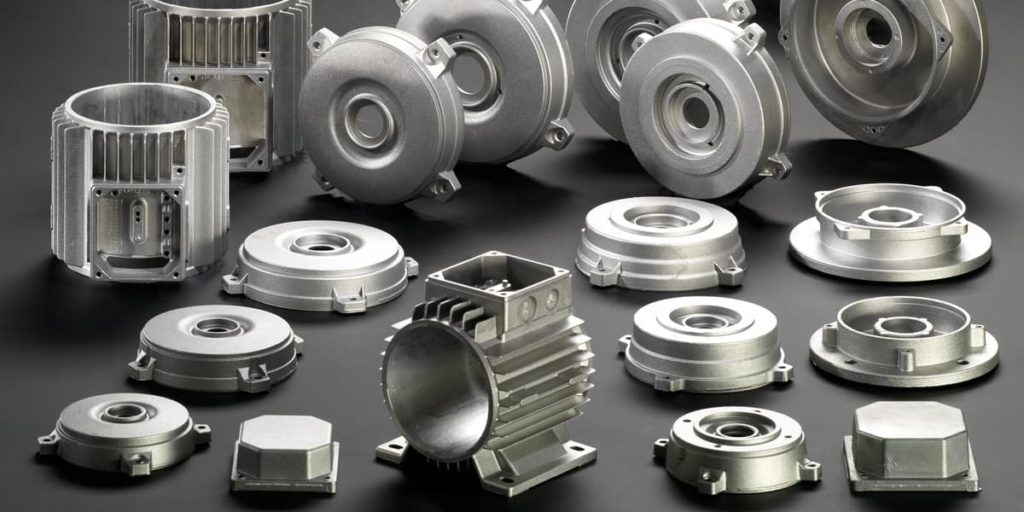Comprehending the Role of Aluminum Foundry in Creating High-Quality Steel Products
Aluminum shops are necessary in the manufacturing of high-grade steel products. They utilize numerous casting strategies, such as sand and pass away casting, to attain precision and resilience. With strenuous high quality control procedures in place, these centers assure that their items meet market criteria. As markets progress, the duty of Aluminum factories remains to adjust. This questions about future technologies and sustainability techniques that might redefine their impact.
The Aluminum Spreading Refine: Innovations and methods
The Aluminum spreading process has advanced significantly, incorporating various techniques and advancements that improve performance and item quality. Commonly, methods such as sand spreading and pass away spreading were predominant; nonetheless, innovations have actually presented processes like investment spreading and low-pressure die casting. These developments make it possible for suppliers to achieve elaborate designs and tighter tolerances, reducing material waste and enhancing general performance.
The assimilation of computer-aided design (CAD) and simulation software application allows for even more accurate modeling and testing, making certain that possible issues are recognized early in the manufacturing cycle. Wisconsin Aluminum Foundry. In addition, developments in alloy solutions bring about boosted mechanical properties and corrosion resistance
These growths not just enhance production but additionally promote sustainability by minimizing power usage and exhausts. As the sector remains to embrace new innovations, the Aluminum spreading process continues to be a vital part in producing premium metal products that satisfy varied market needs.
Applications of Aluminum in Various Industries
Aluminum's adaptability and desirable properties make it an important product across different markets. In the automotive field, Aluminum is extensively utilized for its lightweight features, contributing to boosted fuel effectiveness and efficiency. The aerospace sector likewise advantages, as aluminum's high strength-to-weight ratio improves airplane layout while keeping security standards.
In building and construction, Aluminum is favored for its toughness and resistance to corrosion, making it ideal for window frames, roofing, and architectural elements. The product packaging market leverages light weight aluminum's non-toxic nature and recyclability, especially in food and drink containers, ensuring safety and security and sustainability.
In addition, the electric industry uses Aluminum for its superb conductivity in electrical wiring and transmission lines. The consumer goods industry makes use of Aluminum in products varying from kitchen tools to electronics, emphasizing its adaptability. Consequently, Aluminum plays a crucial duty in enhancing functionality, effectiveness, and sustainability throughout varied applications.
Advantages of Making Use Of Aluminum Over Various Other Steels
While several steels are utilized in various applications, Aluminum stands apart due to its unique mix of properties that use several benefits over other materials. Its lightweight nature greatly minimizes transportation costs and energy intake, making it perfect for markets such as vehicle and aerospace. Aluminum's exceptional corrosion resistance boosts sturdiness, extending the life of items and lowering maintenance requirements. Furthermore, it exhibits high thermal and electric conductivity, making it appropriate for electric and thermal administration applications.
The metal's pliability enables detailed styles and complex forms, offering adaptability in manufacturing procedures. Aluminum is 100% recyclable without loss of top quality, promoting sustainability and lowering ecological effect. These characteristics, integrated with its relatively low cost contrasted to other metals, setting Aluminum as a recommended choice across different fields. Overall, the advantages of Aluminum contribute to its enhancing popularity in the production of high-quality steel items

Top Quality Control Measures in Aluminum Foundries
Quality control actions play a vital function in the Aluminum Foundry process, ensuring that the end products satisfy strenuous sector criteria and customer assumptions. These measures generally begin with material inspection, where raw Aluminum is reviewed for pureness and structure. As soon as the spreading procedure starts, temperature control is crucial; preserving suitable molten metal temperature levels protects against issues such as porosity and shrinkage.
In addition, non-destructive screening (NDT) strategies, consisting of radiographic and ultrasonic this page assessments, are employed to spot internal problems without harming the spreadings. Visual assessments are likewise performed at various phases to identify surface blemishes.
Adherence to well established quality management systems, such as ISO criteria, is essential for maintaining uniformity and traceability throughout the manufacturing process. Normal audits and worker training on quality standards add to a general culture of excellence, making sure that the products not just satisfy yet exceed customer assumptions in performance and durability.
The Future of Aluminum Foundries: Patterns and Sustainability
As the Aluminum Foundry industry evolves, emerging patterns and an emphasis on sustainability are improving its landscape. Boosting demand for durable and lightweight products in sectors like vehicle and aerospace drives technology in Aluminum casting methods. Advanced modern technologies, such as synthetic knowledge and automation, are enhancing production performance and precision while reducing waste.
Sustainability is coming to be a paramount issue, prompting factories to apply my response environment-friendly techniques, consisting of recycling Aluminum scrap and making use of renewable resource sources. The shift towards circular economy concepts encourages foundries to minimize environmental influence while satisfying consumer expectations for lasting products.
Furthermore, governing pressures are pressing the sector in the direction of cleaner procedures, cultivating collaboration in between makers and ecological companies. As these fads assemble, the future of Aluminum foundries will likely be characterized by a dedication to performance, sustainability, and high quality, guaranteeing their importance in an affordable market.
Regularly Asked Inquiries
What Are the Ecological Effects of Aluminum Foundries?
Aluminum factories add to ecological effects through power intake, greenhouse gas discharges, and potential air and water pollution. Additionally, mining bauxite for Aluminum can result in habitat destruction and dirt destruction, influencing regional ecological communities.

How Do Factories Guarantee Worker Safety During Manufacturing?
Shops execute rigorous safety protocols, including protective devices, air flow systems, and normal training. They conduct danger assessments and maintain safety criteria to lessen risks, making sure a much safer working setting for workers throughout the manufacturing procedure.
What Accreditations Should a Light Weight Aluminum Foundry Have?
A light weight aluminum Foundry need to possess qualifications such as ISO 9001 for quality management, ISO 14001 for environmental monitoring, and OSHA compliance for security standards. These qualifications assure adherence to industry guidelines and commitment to quality and safety practices.
Exactly How Does Aluminum Recycling Affect Foundry Workflow?
Aluminum reusing substantially boosts Foundry operations by offering a cost-efficient raw product resource, minimizing energy consumption, and reducing environmental effect - Aluminum Castings. It likewise motivates lasting techniques, allowing foundries to maintain competitiveness in a rapidly developing market
What Are Typical Flaws in Aluminum Castings?
Typical problems in Aluminum castings consist of porosity, contraction, additions, and surface area imperfections. These concerns can emerge from incorrect mold and mildew style, insufficient pouring strategies, or contamination throughout the melting and spreading procedures, influencing general product high quality.
